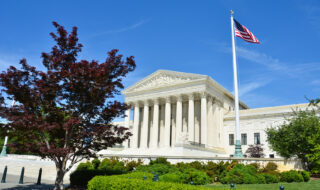Understanding Music Licensing
Understanding Music Licensing
February 24, 2025
Understanding Music Licensing
Understanding Music Licensing for your Business:
Playing music in your business can create a more welcoming atmosphere and overall boost customer satisfaction. Business owners, however, often overlook the legal requirements of music licensing. Whether you are streaming music, hiring a live band, or hosting karaoke nights, understanding the rules can save your business from hefty fines and legal trouble.
What is Music Licensing?
When music is played publicly, whether via speakers, a jukebox, or a live performance, it is considered a public performance. Music is considered intellectual property, and its creators are entitled to compensation for its use. This is where Performing Rights Organizations (PROs) like BMI, ASCAP, SESAC, and GMR come in. PROs collect licensing fees on behalf of songwriters, composers, and publishers. They ensure these creators are paid whenever their music is played in public. As a business owner, obtaining a license from one or more PROs allows you to legally play copyrighted music in your establishment.
Why do I Need a License?
Many business owners mistakenly believe that streaming services like their personal Spotify or Pandora accounts are sufficient, but personal accounts are not designed for public performance. Failing to comply with licensing requirements can result in fines that range from hundreds to tens of thousands of dollars.
What About Cover Bands and Live Performances?
If your business hires cover bands or hosts live music, you are still responsible for the appropriate music licenses. PROs require businesses to pay licensing fees because the music being performed, even by a live band, is likely copyrighted. The responsibility falls on the business, not the performers, to ensure compliance.
How do I Obtain Licensure?Hhiogw
Getting a license through a PRO is a straightforward process:
- Identify the PROs You Need
Research the music you plan to play and identify which PROs represent the artists. The four major PROs are:
- Visit Their Websites
Each PRO has an online portal where you can apply for a license. The process involves filling out basic information about your business, such as:
- Business type (gym, restaurant, etc.);
- The size of your establishment; and
- The method of playing music (live, recorded, streaming, etc.).
- Pay the Licensing Fee
Licensing fees vary based on factors like the size of your business, how music is played, and how often it is used. Many PROs offer annual flat rates for small businesses, while others may tailor fees to your specific situation. - Maintain Your License
Once you’ve obtained a license, it must be renewed annually. PROs typically send reminders to ensure uninterrupted coverage.
Alternatives to Traditional PROs
For businesses seeking a simpler or more tailored solution, commercial music accounts offer a convenient alternative to obtaining traditional PRO licenses. These accounts ensure legal compliance while providing curated music options specifically designed for business use.
Sirius XM for Business:
Sirius XM for Business provides access to over 240 curated music channels designed for public performance. Upon subscribing, your business is automatically covered for music licensing, as SiriusXM handles all agreements with PROs on your behalf.
Pandora for Business:
Pandora Music offers a “Pandora for Business” service that allows you to play licensed music from BMI, SESAC, ASCAP, and more.
Soundtrack Your Brand:
Soundtrack Your Brand is a similar service to Pandora and can cover background music through ACAP, BMI, and GMR. A subscription can also cover public performances with some exceptions.
The “Home-Style” Exception:
There is one exception to copyright infringement when a business plays copyrighted music: the “home-style” exemption. If your business is a “food service or drinking establishment,” has less than 3,750 gross square feet of space, and no more than 6 loudspeakers total (and no more than 4 per room), you can rebroadcast music (meaning, radio or tv) without a license.
Takeaways:
Music can transform your business but using it legally by complying with licensure laws is essential. Whether you’re streaming songs or hosting a cover band, proper licensure protects your business from legal issues, penalties, and fines.
If you have any additional questions on licensing your business for music streaming, live performances, or PROs in general, please contact info@nfib.org.
NFIB is a member-driven organization advocating on behalf of small and independent businesses nationwide.
Related Articles














